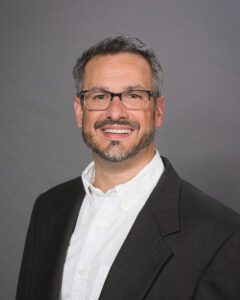“If you have somebody with a sprained ankle in your congregation and they come in, they’re on crutches; they’re doing their best to heal. What do you tell that person?”
Mike Williams, co-founder of Six2 Ministries, uses this scenario to explain how many in the Church treat physical issues versus mental health issues. With physical health, the response is often asking questions about how to help, like “Do you need a chair?” or “Do you need help getting back to the doctor?”
However, the bigger issue is what is NOT said in this scenario.

“Do you tell them to stop limping? Do you tell them that if they had read more of the Bible, they wouldn’t have sprained their ankle? Do you tell them that if they just pray more, they would be okay?
“Now imagine a mental illness,” Williams continued. “What do you tell that person?”
Wide versus deep
Six2 Ministries, named from Galatians 6:2 — “Carry each other’s burdens, and in this way you will fulfill the law of Christ” — was founded in part to address the need that Williams saw when he was working with church revitalization. He saw that the focus is often on increasing the “wide” (numbers, such as attendance, baptisms, total offerings, variety of programs) instead of highlighting true needs by going “deep” (what’s going on inside a person).
Williams found that a church can have what seems to be healthy numbers but not be internally healthy. He also noticed the leadership was suffering due to being so performance driven.
“We began to notice that [focusing on the numbers] became an outlet so I don’t have to deal with myself. [I can] focus on where I’m at more than focusing on myself.
“That’s dangerous ground. It’s a lot messier to say that I have a need and my church has a need. It feels like weakness as a leader, that I’m weak or not good enough. I should have the answers,” Williams said.
Conversations with leader after leader brought up these same issues. Conflicts in churches led to conflicts in homes. People felt that their spouses were married to their churches and not to them. There were feelings of shame, not being good enough, overload, overwhelm, being stuck and the list goes on.
The universal feeling was that they didn’t have any ideas on how to fix it.
Fresh perspective
One aspect of Six2 Ministries is to help these struggling church leaders. Instead of coming to help and immediately discussing skills that need to be improved, Williams helps them see what’s really happening and offers a fresh perspective. Only then does he work on needed skills.
“Sometimes the greatest gift is brokenness because God is elevated,” he said. “It becomes a teacher. We start where you want, but we’re going to eventually get to your life as a leader. Let’s talk about the hurdles that you’re having. Where do they come from?”
Williams unpacks layers until he finds the starting place for the requested leadership development.

Having someone who can walk alongside a person — whether it be another leader, a church member or someone outside of the church — is not only desired; it’s necessary. Williams feels strongly that the only way to have greater impact in ministry is to not do it alone.
But he does recognize that it’s not easy. The areas of need that can be seen and can show obvious change — like an ankle healing or the rate of baptisms increasing — are easier to deal with than helping someone with mental, emotional or invisible illnesses.
“When you talk about depression, anxiety, stress, overwhelm or grief, it’s not as understandable, and it’s very unique to each person. It can be really messy, and mess makes a lot of us uncomfortable.
‘Elevate Christ’
“There could be some mental challenges, just like there are physical challenges,” Williams continued. “There could be relational challenges. There could be emotional challenges. We don’t know because we didn’t take the time to sit in a messy spot with people, love them where they are, normalize brokenness — and then elevate Christ.”
Whether it’s concerning a church or a friendship, Williams suggested asking, “Where is it most healing to express certain needs? Is that [issue] really for the whole congregation or is it for the people I trust the most?” These decisions need to be made by someone who intimately knows those involved — not by an outside mentor or coach — in order to make sure that all sharing is done in a safe space.
“We need to provide a pathway in order to say, ‘How do we connect people in meaningful conversations where we can have hard conversations that are uncomfortable? How do we start embracing the uncomfortable and normalizing this brokenness, with the leaders as a model?
“It’s not out of our actions that they’ll see Christ. It’s really out of our love that we’ll see Christ. That’s what John 13 teaches us. How we love is the first measure. Then what do we do because of our love — that’s the outcome. If we don’t talk about our struggles and stresses, then why do we need Christ?”
To find out more about what Mike Williams and his wife, Charity Williams, do through Six2 Ministries, go to six2ministries.com.







Share with others: